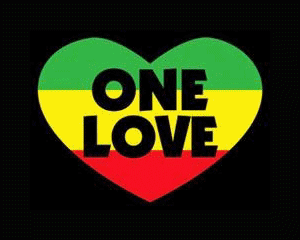Inner potential is the highest goal!
- Admin
- Mar 5, 2018
- 9 min read

The main life task of man is to give life to itself, to become what is potentially possible. The most important fruit of his efforts is his own personality. We do not have to explain to anyone and answer anything, while our actions do not cause pain or affect others. How many lives have been destroyed by the necessity of "explanation", which usually implies that you "understand", that is justified. Judge your actions, and according to them - about your true intentions, but know that a free man is obliged to explain something to himself - his own mind and consciousness - and the few who have the right to demand an explanation. If I love, I will take care, that is, I will actively participate in the development and happiness of another person, I am not an observer. The goal of a man is to be his, and the condition for achieving that goal is to be a man for himself. It's not self-denial or self-love, it's love for yourself; not the rejection of the individual - but the establishment of one's own human self: these are the true values of humanistic ethics. In life, there is no other meaning, besides what a man brings to him, revealing his strength by living fertile. If a person can live not compulsively, neither in automatism, but spontaneously, then he becomes aware of himself as an active creative person and realizes that life has only one meaning - life itself. We are what we have suggested to ourselves and what others have suggested about us. Happiness is not a gift of God, but the achievement, of a man in achieving his inner fertility. Everything is important to man, except for his own life and the art of life. He exists for anything, not just for himself. A subtle-feeling man has no power to refrain from the deep sorrow over the unrelenting tragedy of life. Both joy and sadness are inevitable experiences of a sensitive man of a lifetime. The unfortunate fate of many people is due to the election they did not do. They are neither alive nor dead. Life is a burden, a constant occupation, and work is just a means of protection against the severity of the existence in the shadow kingdom. The term "being alive" is not a static term, but dynamic. The existence of this is also the dissolution of the specific forces of the organism. The actualization of potential forces is an inherent means of all organisms. Therefore, disclosing the potential of a man in accordance with the laws of his nature should be considered as the goal of human life. Compassion and survival presupposes that I experience in myself what the other person is experiencing, and accordingly in that experience he and I are one. All the knowledge of the other man is as real as they rely on my experience of what he is experiencing. I am sure that no one can "save" his neighbor by making a choice for him. Everything in which one person can help another is to reveal it truthfully and with love, but without sentimentality and illusion, without the existence of an alternative.
Life puts a paradoxical task in front of one man: on the one hand, he realizes his individuality, and on the other to overcome him and follow the experience of universality. Only the versatile development of personality can rise above its Self. If childhood comes from the principle: "I love because I am loved." Mature love stems from the principle: "I love because I love." Unruly love shouts: "I love you because you need me". Mature love thinks: "You need me because I love you." Coming to one another is not a proof of the power of love, but merely testifies to the great loneliness that preceded her. If a person experiences love according to the principle of possession, this means that he tends to deprive the object of his "love" of freedom and keep him under control. Such love does not give life, but gives it, destroys, suffocates, kills. Most people believe that love depends on the object, not on their own ability to love. They are even convinced that if they do not like anyone other than a "beloved" man, this proves the power of their love. There is a misconception here - orientation to the object. This is similar to the condition of a man who wants to paint, instead of learning painting, claims that he only needs to find the appropriate nature: when that happens, he will paint beautifully, and this will happen only by myself, and if I really love Someone, I love all people, I love the world, I love life. If I can tell someone "I love you," I must be able to say "I love everything in you", "I love you all over the world, I love you in myself." The character of the child is a replica of the character of a parent, which develops in response to their character. If a person is able to completely love, then he likes himself; if he can only love others, he can not love at all. It is usually considered that love is the culmination of love, at the time when it is only the beginning and only the possibility of gaining love. It is usually considered to be the result of the mystery and affection of two people to one another, of an event that takes place in its own right. Yes, loneliness and sexual desire make love a lighter act, and there is nothing mysterious, but it is a success that goes as fast as he came. Random voting does not exist; your ability to love causes love, just as interest makes man interesting. A person who can not create, wants to destroy. Even as weird, but being able to be alone is a prerequisite for the ability to love. How important is that avoiding empty stories, it is also important to avoid bad company. Under "bad company" I consider not only married people - their society should be avoided due to the difficult and harmful effects. I have in mind such a "zombie" company whose soul is dead, even though the body is alive; people with empty thoughts and words, people who do not talk but already speak, do not think, they are already expressing public opinion. A loved one needs to find himself, not to lose himself in him. When things can speak, then the question "Who are you you?" the typewriter replied: "I am a typewriter", the car would say "I am a car" or more precisely "I am Ford" or "Bjuik" or "Cadillac". If you ask the man who he is, he answers: "I'm a fab.", "I am a worker." "I am a doctor." or "I'm a married man." or "I am the father of two children." and his answer signifies almost the same thing as the answer to the things they say. If other people do not understand our behavior, what is it? Their desire to work only as they realize it is an attempt to dictate to us. If it means being "asocial" or "irrational" in their eyes, let them be most offended by our freedom and our courage to be our own! Our moral problem, that is the indifference of man to himself. Man is the center and goal of his life. of their personality, the realization of their inner potential is the highest goal, which simply can not be changed or depend on other supposedly higher goals.
Erih From

Glavni životni zadatak čoveka.. je da da život samom sebi, da postane ono što je potencijalno. Najvažniji plod njegovih napora je njegova sopstvena ličnost. Ne moramo nikome ništa da objašnjavamo i odgovaramo, dok naši postupci ne pričinjavaju bol ili ne utiču na druge. Koliko je života bilo uništeno neophodnošću "objašnjavanja", koje obično podrazumeva da bi vas "razumeli", to jeste opravdali. Sude o vašim postupcima, i po njima - o vašim istinskim namerama, ali znajte da je slobodan čovek dužan da objašnjava nešto samo samom sebi - svom umu i svesti - i malobrojnim, koji imaju pravo da zahtevaju objašnjenje.
Ako volim, brinuću se, to jest, aktivno ću učestovati u razvoju i sreći drugog čoveka, nisam posmatrač. Cilj čoveka je da bude svoj, a uslov za postizanje tog cilja je da bude čovek za sebe. Nije to samoodricanje ni samoljublje, već ljubav prema sebi; nije odbacivanje individualnog - već utvrđivanje svog sopstvenog ljudskog ja: to su prave više vrednosti humanističke etike. U životu, ne postoji drugog smisla, osim toga, koji mu čovek pridaje, otkrivajući svoju snagu živeći plodotvorno.
Ako čovek može da živi ne prinudno, ni po automatizmu, već spontano, tada on osvešćuje sebe kao aktivnu stvaralačku ličnost i shvata da život ima samo jedan smisao - sam život.
Mi smo to što smo sugerisali sami sebi i to što su nam drugi sugerisali o nama.
Sreća nije neki Božiji dar, već dostignuće, nekog čoveka u postizanju svoje unutrašnje plodotvornosti.
Za čoveka je sve važno, osim njegovog sopstvenog života i umetnosti življenja. On postoji zbog bilo čega, samo ne zbog samog sebe.
Suptilno osećajan čovek nema snage da se uzdrži od duboke tuge povodom nepovratih tragedija života. I radost i tuga su neizbežni doživljaji osetljivog čoveka punog života.
Nesrećna sudbina mnogih ljudi je posledica izbora koga nisu uradili. Oni nisu ni živi ni mrtvi. Život se ispostavlja teret, neprestalno zanimanje, a rad samo sredstvo za zaštitu od težine postojanja u carstvu senke.
Pojam "biti živ" nije statičan pojam, već dinamičan. Postojanje to je takođe i raskrivanje specifičnih snaga organizma. Aktualizacija potencijalnih snaga je urođeno sredstvo svih organizama. Zbog toga, raskrivanje potencijala čoveka u skladu sa zakonima njegove prirode treba posmatrati kao cilj ljudskog života.
Saosećanje i preživljavanje pretpostavlja, da ja doživljavam u sebi isto to što doživljava drugi čovek, i u skladu sa tim u tom doživljavanju on i ja smo jedno. Sva znanja o drugom čoveku su stvarna toliko, koliko se oni oslanjaju na moje doživljavanje toga što proživljava on.
Siguran sam da niko ne može da "spasi" svog bližnjeg praveći izbor za njega. Sve u čemu može da pomogne jedan čovek drugome je da mu to otkrije istinito i sa ljubavlju, ali bez sentimentalnosti i iluzija, bez postojanja alternativa.
Život stavlja ispred čoveka paradoksalan zadatak: sa jedne strane da realizuje svoju individualnost, a sa druge da ga prevaziđe i pođe prema iskustvu univerzalnosti. Samo svestrani razvoj ličnosti može da se uzdigne iznad svog Ja.
Ako dečija ljubav proizilazi iz principa: "Ja volim, zato što sam voljen.", zrela ljubav proizilazi iz principa: " Ja volim, zato što ja volim." Nezrela ljubav viče: "Volim te jer si mi potreban!". Zrela ljubav rasuđuje: "Potreban si mi, jer te volim.".
Ushićenje jednog prema drugom - nije dokaz snage ljubavi, već samo svedoči o velikoj usamljenosti koja joj je prethodila.
Ako čovek doživljava ljubav po principu posedovanja, to znači da on teži da liši objekta svoje "ljubavi" slobode i da ga drži pod kontrolom. Takva ljubav ne daruje život, već ga davi, uništava, guši, ubija.

Većina ljudi veruje da ljubav zavisi od objekta, a ne od sopstvene sposobnost da se voli. Oni su čak ubeđeni da, ako oni ne vole nikoga osim "voljenog" čoveka, da to dokazuje snagu njihove ljubavi. Ovde se javlja zabluda - usmerenje na objekat. Ovo je slično stanju čoveka, koji želi da slika, a umesto da uči slikarstvo, tvrdi da samo treba da pronađe odgovarajuću prirodu: kad se to desi, on će prelepo slikati, pri tome to će se desiti samo od sebe, a ako stvarno volim nekog čoveka, ja volim sve ljude, ja volim svet, ja volim život. Ako mogu da kažem nekome "volim te", ja moram biti sposoban da kažem "Volim sve u tebi", "Volim zahvaljujući tebe ceo svet, volim u tebi samog sebe."
Karakter deteta je replika karaktera roditelja, on se razvija kao odgovor na njihov karakter.
Ako je čovek sposoban da kompletno voli, tada on voli i sebe; ako on može da voli samo druge, on ne može da voli uopšte.
Obično se smatra da je zaljubljenost vrhunac ljubavi, u to vreme kada je to tek početak i samo mogućnost sticanja ljubavi. Obično se smatra da je to rezultat tajanstvenosti i naklonosti dvoje ljudi jednog prema drugom, nekog događaja koji se odvija sam po sebi. Da, usamljenost i seksualna želja čine zaljubljenost lakim činom, i tu ne postoji ništa misteriozno, ali to je uspeh koji odlazi jednako brzo kao što je i došao. Slučajno voljenje ne postoji; tvoja sposobnost da voliš izaziva ljubav, isto tako kao što zainteresovanost čini čoveka interesantnim.
Čovek koji ne može da stvara, želi da uništava.
Iako je čudno, ali umeće da se bude sam je preduslov za sposobnost da se voli.
Koliko je važno da se izbegavaju prazne priče, isto tako je važno da se izbegava loše društvo. Pod "lošim društvom" ja smatram ne samo poročne ljude - njihovo društvo treba izbegavati zbog teških i štetnih uticaja. Ja imam u vidu takvo društvo "zombi" čija je duša mrtva, iako je telo živo; ljudi sa praznim mislima i rečima, ljudi koji ne razgovaraju već pričaju, ne misle, već iskazuju javno mnjenje.
U voljenom čoveku treba nalaziti sebe, a ne gubiti sebe u njemu.
Kada bi stvari mogle da govore, tada bi na pitanje "Ko si ti?" pisaća mašina odgovorila: "Ja sam pisaća mašina", automobil bi rekao "ja sam automobil" ili tačnije "ja sam Ford" ili "Bjuik" ili "Kadilak". Ako pitate čoveka ko je on, on odgovara: "Ja sam fabrikant.", "Ja sam radnik.", "Ja sam doktor." ili " Ja sam oženjen čovek." ili "Ja sam otac dvoje dece." a njegov odgovor označava skoro isto to, što bi značio odgovor stvari koje govore.
Ako drugi ljudi ne razumiju naše ponašanje, šta je to? Nihova želja da radimo samo tako kako oni shvataju, to je pokušaj da diktiraju nama. Ako to znači biti "asocijalan" ili "neracionalan" u njihovim očima, neka.
Najviše ih vređa naša sloboda i naša hrabrost da budemo svoji!
Naš moralni problem, to je ravnodušnost čoveka prema samom sebi.
Čovek je centar i cilj svog života.
Razvoj svoje ličnosti, realizacija svog unutrašnjeg potencijala je najviši cilj,
koji jednostavno ne može da se menja ili da zavisi od drugih navodno viših ciljeva.
Erih From







































































































































Comments